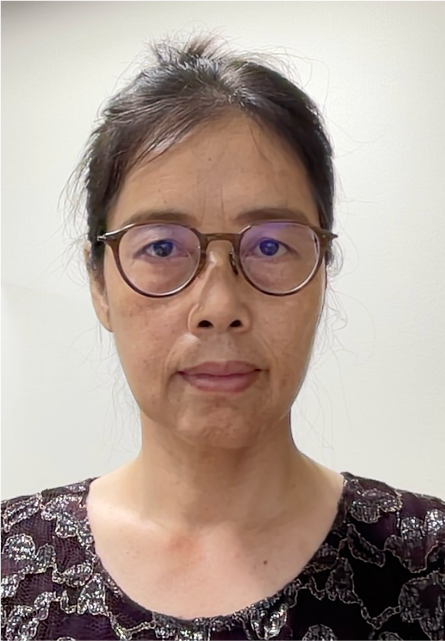In June 2023, Jinlian Wang, PhD joined McWilliams School of Biomedical Informatics as an assistant professor. She is a resourceful and knowledgeable scientist who specializes in various areas including machine learning, knowledgebase, NGS-based genetic, genomic, metabolic, and proteomic data analysis, processing, cancer biological pathway and networks modeling. She is also involved in platform development for clinical genetic testing, cancer testing, diagnostics, pharmaceuticals, and clinical informatics.
Dr. Wang excels in managing and maintaining of genomic data analysis pipelines, providing support for laboratory operations as well as developing informatics tools. Her expertise lies in collecting, aggregating, and interpreting genetic, genomic, and clinical data from thousands of patients, enabling physicians to deliver precise treatments to the patient at the right time. She has successfully collected and aggregated vast amounts of structured and unstructured data from various sources, including sequencing, literature, protein-protein interaction, metabolic, pathways, and gene expression data. Furthermore, she has leveraged this data to create innovative software, revolutionizing the way physicians perform their jobs.
Dr. Wang actively collaborates with QA and clinical groups to ensure data integrity and storage best practices, while also utilizing AWS cloud services to reduce the costs associated with data analysis and storage. Rare disease patients often face significant diagnostic delays, waiting an average of 6 years from the onset of symptoms to an accurate diagnosis. One of the rare disease research goals is to address the translation gap by building a novel end-to-end informatics framewor. Aims include: 1) Accelerate the diagnosis of rare diseases. 2) Apply various recommendation techniques to suggest rare disease differential diagnoses. 3) Search information, display differential diagnostic recommendations, and collect clinical evidence automatically for further validation. Eventually to address the translational gap faced in rare diseases through technology innovations towards real-world challenges. With extensive experience in both academic and industry settings, Dr. Wang is actively involved in academic activities and serves as a board editor for the Journal of Cancer.
- Tell us about your research center and/or what research you are currently working on?
I am working at the center for translational AI excellence and application in medicine. Our primary focus is on utilizing novel data science, artificial intelligence (AI), and informatics techniques to transform clinical data into actionable insights for clinical research and healthcare improvement. By collecting, curating, and analyzing large-scale datasets from diverse sources such as healthcare records, genomics data, and social media data, we strive to extract meaningful patterns and applications across various fields.
Now I am working on rare disease and cancer genomic research include Knowledgebase, graph knowledge, genomic and automation of genetic variants interpretation and annotation.
- What type of student or Postdoctoral Fellow are you looking for to work in your center? (If applicable.)
Computer science, bioinformatician, informatician, biostatistician
- What does the future of your research look like?
AI assistant rare disease diagnosis: AI algorithms will address the translation gap by adopting methods implemented previously in our prior work.
System medicine: By utilizing various resources to automatically collect, screen, extract,analyze and summarize the cancer clinical trial effect, events and significance to develop targeted therapies tailored to individual patients, improving treatment efficacy and reducing side effects.
- What does the future of informatics look like?
The future of informatics will focus on integrating and harmonizing disparate data sources to enable comprehensive analysis and decision-making.
- What major UTHealth Houston departments/institutes do you collaborate with?
Molecular medicine, oncology, genomic testing center etc.
Education
- PhD, Artificial Intelligence and Bioinformatics, Beijing University of Technology
- MS, Computer Science, Northwestern Polytechnical University
- BA, Chemical Engineer, Anhui University of Science and Technology
Areas of Expertise
- Machine learning, Artificial Intelligence, Deep Learning
- Rare disorders NGS data annotation and interpretation
- Cancer/genetic disease knowledgebase
- Predictive models of genetic disease /cancer.
- Molecular networks modeling based on large-scale sequence variation, molecular profiling and clinical data in disease populations
- Processing of biomedical data in the fields of next generation sequencing (NGS), clinical trials and human genetics/genomics.
